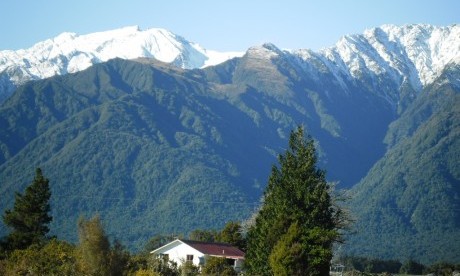Discussion of the environment can be a turn off. The topic is vast and complicated, and it raises high passions. When we imagine the environment, we may imagine walking in remote bush country now threatened by logging. We may imagine Tasmanian tigers that have become extinct, or the inhabitants of Tuvalu whose island is gradually being inundated. We may think of the furious debates about how we should respond to global warming, about balancing the needs of farmers and the needs of the Murray Darling system for water, and about the carbon tax. We may also imagine school projects of planting trees, recycling and introducing solar heating. Or faced with such a complex topic, we may just stop thinking, wish it would all go away so we can get on with life.
In this Explorations we won’t try to answer all the questions about the environment. We shall ask a simpler question. How does Christian faith lead us to see the environment? That may help to handle the complex questions.
Creation
In Christian language, the environment begins with creation. Creation often crops up in arguments between Christians and atheists. They disagree about whether the world came into being spontaneously, was always there, or whether it needed a God to make it.
This is an important question, but creation raises even more important questions about what kind of a world God has made for us, and how we can live well in it.
The Scriptures often speak of the world as a beautiful place. The Psalms, for example, celebrate the beauty and the richness of the world in which we live. The biblical stories of creation celebrate the wonder of the world we live in. The beauty and variety of nature remind us of the beauty of the God who made it.
The biblical writers also describe the world as a complex place. Like Indigenous Australians, the people of Israel knew in their bones the way everything is interrelated. They saw the relationship between the seasons and crops, between the rain and growth, and the need to live simply. These complex relationships reminded them of God’s wisdom on which the world depends.
The Scriptures are most interested in the place of human beings in the world. God gives the world into our care. The Scriptures were written in an agricultural society. They thanked God for a world that feeds us and offers us shelter. In turn we are responsible for using it well and ensuring that it remains able to support future generations. Our care for the world should reflect God’s governance of creation. Read more
Source
- Fr Andrew Hamilton SJ in Australian Catholics
